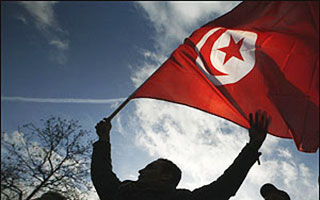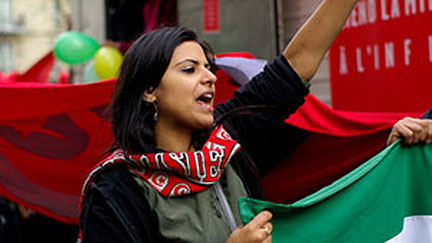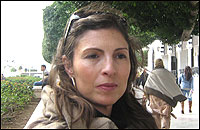Arab Spring
Council of Europe and Arab Spring

After Secretary General Thorbjørn Jagland visited Tunisia in February and offered the Council of Europe's practical cooperation, efforts are underway – from the Parliamentary Assembly and the Venice Commission, to the Pompidou Group and the North-South Centre.
The Council of Europe supports women’s rights in Africa and the Middle East

Women have been at the forefront of the Arab Spring. Many relished the promise of positive change when a series of democratic uprisings erupted in Tunisia and spread across Egypt, Libya, Yemen, Syria and the Gulf.
Women took a stand for civil society across the region and strove for a new sense of equality, long suppressed under old, patriarchal regimes.
"By offering a platform to speak out for women's rights, the Council of Europe plays its part to keep women's rights in Arab Spring countries in focus", said author and journalist Souhayr Belhassen, joint winner of the Council of Europe's North-South Prize this year. During a visit to Strasbourg on 12 March 2012, she highlighted a petition published worldwide and signed by thousands of people – including celebrities – urging Arab Spring countries to treat women with dignity, equality and respect.
On the occasion of women's day, Council of Europe Secretary General Thorbjørn Jagland said: "It is important for all of us to recognise the contribution of women in driving progress and reform, and it is essential that women's voices are now heard in building new Arab societies, and in fighting discrimination and stereotypes. If women are again left out, the promising Arab Spring could become a new winter."
© Antoine Walter / Tunisia, 15 January 2011
Syria: Assembly welcomes the emergence of a common position within the international community
Strasbourg, 26.04.2012 – Following an urgent debate on the situation in Syria, the Parliamentary Assembly of the Council of Europe (PACE) firmly condemned the gross human rights violations committed by Syrian military and security forces. It also expressed regret at the continuing violations of the ceasefire implemented under Kofi Annan's peace plan and the increasing number of deaths. PACE equally condemned the human rights violations committed by some armed groups combating the regime.
At the same time the Assembly expressed satisfaction that a "common position is gradually emerging" within the international community with the unanimous adoption of two United Nations resolutions on 14 and 21 April 2012, authorising the deployment of unarmed UN military observers to Syria to report on the implementation of a full cessation of armed violence.
The parliamentarians also stressed that the implementation of Kofi Annan's peace plan and the total cessation of violence should ultimately guarantee democratic change in Syria, gradually creating conditions allowing for a "Syrian-led political process" and eventually for free and fair elections. (more...)
Read also:

An award-winning journalist, Olfa Belhassine is not only a top reporter for the Tunisian daily "La Presse", but has also published articles on the Arab Spring this year in major French publications including "Le Monde" and "Libération".

